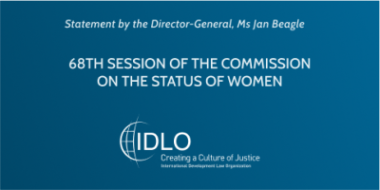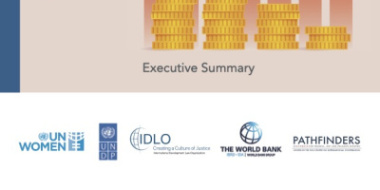Enhancing the role of Myanmar's paralegals for SGBV survivors
In recent years, paralegals have become a part of the justice chain in Myanmar, playing an increasingly important role in raising legal awareness and supporting access to justice for Sexual and Gender-Based Violence (SGBV) survivors.













